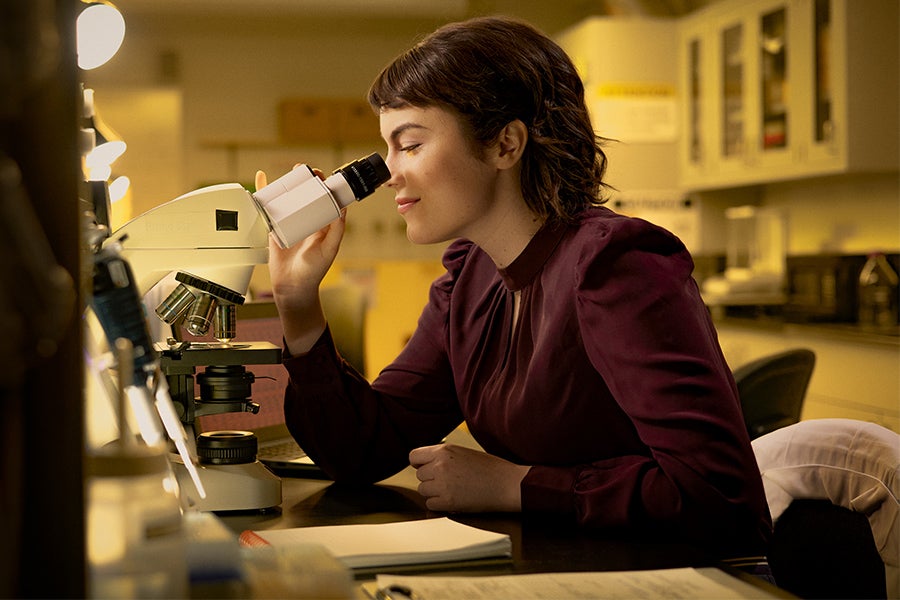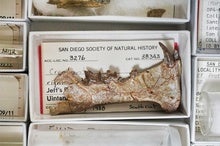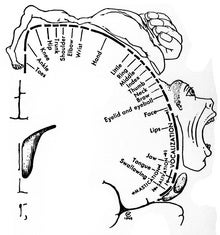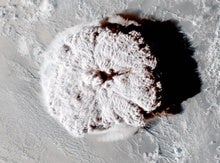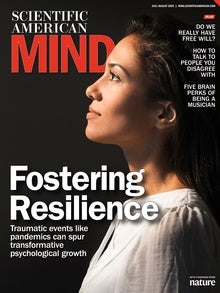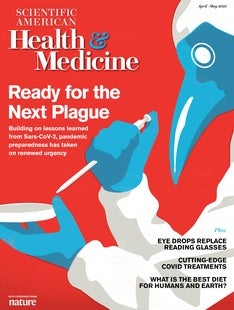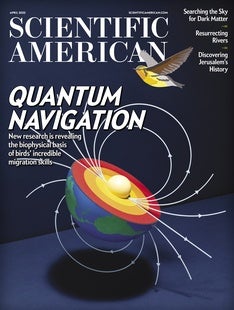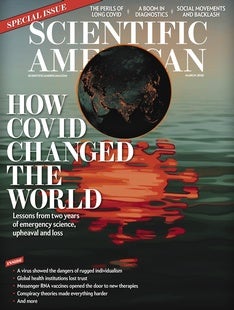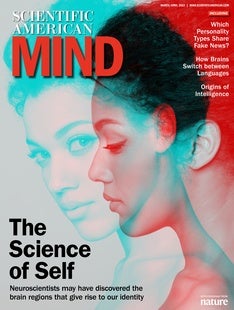 |
| March 18, 2022 |
 |
| |
| |
| |
| |
| |
| |
| |
| |
| |
| |
| |
| |
| |
| |
FROM THE STORE
 | |
Scientific American Mind For $19.99 per year, your subscription includes six bi-monthly digital issues, Android and iOS app access and every digital Mind issue ever published! |  | | |
| |
BRING SCIENCE HOME
 | | Crack the Code! Make a Caesar Cipher |  If you need to send a secret message to a friend, how could you prevent other people from reading it? One way is to encrypt the message—that is, use a secret code that only you and your friend know. Try this activity to learn how to create your own “Caesar cipher,” a popular type of code that is easy to learn. | If you need to send a secret message to a friend, how could you prevent other people from reading it? One way is to encrypt the message—that is, use a secret code that only you and your friend know. Try this activity to learn how to create your own “Caesar cipher,” a popular type of code that is easy to learn. | |  | |
LATEST ISSUES
 |
| |
| Questions? Comments?  | |
| Download the Scientific American App |
| |
| |


.jpg)


